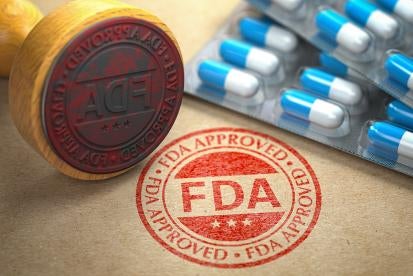The USPTO has issued a Federal Register Notice discussing how the duty of candor and good faith in dealing with the USPTO applies to “information and statements material to patentability … received from or submitted to the FDA and other governmental agencies.” The Notice was issued in accordance with a July 2021 Executive Order and in response to a September 2021 letter from Senators Leahy and Tillis, both of which expressed concerns that patent applicants may make “inappropriate conflicting statements” in submissions to the USPTO and FDA. In addition to discussing the duty of disclosure, the Notice emphasizes the “duty to perform an inquiry” before submitting a paper to the USPTO.
The Executive Order
The Notice cites President Biden’s July 9, 2021, Executive Order on Promoting Competition in the American Economy,86 FR 36987 (2021), which “expressed concern that ‘too often, patent and other laws have been misused to inhibit or delay—for years and even decades—competition from generic drugs and biosimilars, denying Americans access to lower-cost drugs.’” The Executive Order called on the Secretary of Health and Human Services “to help ensure that the patent system, while incentivizing innovation, does not also unjustifiably delay generic drug and biosimilar competition beyond that reasonably contemplated by applicable law.”
The Leahy-Tillis Letter
The Notice also cites the September 9, 2021 letter from Senators Leahy and Tillis to Mr. Andrew Hirshfeld, Performing the Functions and Duties of Director of the USPTO. The letter recognized that “strong intellectual property rights play an important role in the development of biopharmaceuticals, biosimilars, and treatments that save millions of lives every single year,” but emphasized that patents “must meet all the requirements of patentability, including being non-obvious and not anticipated by any prior art.”
The letter acknowledged the USPTO’s July 2021 Notice that “reminded” applicants that “patent applications must properly present examples in a manner that clearly distinguishes between prophetic examples that describe predicted experimental results and working examples that report actual experimental results.” (Read more about that Notice here.) Then the letter asked the USPTO to do more:
We are now requesting the PTO take steps to reduce patent applicants’ making inappropriate conflicting statements in submissions to the PTO and other federal agencies. These conflicting statements too often are submitted confidentially or go unnoticed until after a patent issues, and only then do third parties have the incentive or ability to review the patent owner’s statements before both agencies. There is a clear need for the PTO to take action to require applicants to disclose relevant statements they have made to other agencies relating to inventions discussed in their patent applications or about prior art that is being applied in the patent examination process.
*****
We ask that you take steps as soon as is feasible to enforce patent applicants’ obligations to disclose statements made to other government agencies.
The USPTO’s Federal Register Notice
The USPTO’s Federal Register Notice is entitled “Duties of Disclosure and Reasonable Inquiry During Examination, Reexamination, and Reissue, and for Proceedings Before the Patent Trial and Appeal Board.” The Notice reviews basic principles of the duty of disclosure, including “Who Has a Duty to Disclose Material Information” and “What Material Information Must Be Disclosed,” and also discusses the “Duty of Reasonable Inquiry.” That duty is set forth in 37 CFR § 1.4(d)(4)(i) and 37 CFR § 11.18(b)(2). The first rule states:
The presentation to the Office (whether by signing, filing, submitting, or later advocating) of any paper by a party, whether a practitioner or non-practitioner, constitutes a certification under § 11.18(b).
The certification under § 11.18(b)(2) is as follows (emphasis added):
To the best of the party's knowledge, information and belief, formed after an inquiry reasonable under the circumstances, (i) The paper is not being presented for any improper purpose, such as to harass someone or to cause unnecessary delay or needless increase in the cost of any proceeding before the Office; (ii) The other legal contentions therein are warranted by existing law or by a non-frivolous argument for the extension, modification, or reversal of existing law or the establishment of new law; (iii) The allegations and other factual contentions have evidentiary support or, if specifically so identified, are likely to have evidentiary support after a reasonable opportunity for further investigation or discovery; and (iv) The denials of factual contentions are warranted on the evidence, or if specifically so identified, are reasonably based on a lack of information or belief.
In the Notice, the USPTO explains (emphasis added):
[E]ach party presenting a paper to the USPTO, whether a practitioner or non-practitioner, has a duty to perform an inquiry that is reasonable under the circumstances. This reasonable inquiry may comprise reviewing documents that are submitted to or received from other Government agencies, including the FDA. … A duty of reasonable inquiry may exist based on circumstances known to the party presenting the paper to the USPTO.
*****
Each individual with a duty to disclose, or party with a duty of reasonable inquiry, should ensure that the statements made to the USPTO and other Government agencies, or any statements made on their behalf to other Government agencies regarding the claimed subject matter, are consistent.
Furthermore, providing material information to other Government agencies, including the FDA, while simultaneously withholding the same information from the USPTO undermines both the intent and spirit of the duty of disclosure and violates those duties.
Information That May Be Material To Patentability
The USPTO’s Manual of Patent Examining Procedure provides examples of information that may be material to patentability that applicants should consider disclosing to the USPTO. The Federal Register Notice discusses additional categories of information that may be particularly relevant to pharmaceutical/biologic inventions:
-
Positions taken/statements made to FDA that may be inconsistent with positions taken/statements made to the USPTO
-
Prior art submitted to FDA
-
Information in/documents provided with a Paragraph IV certification received from an ANDA filer
-
Inaccuracies discovered in positions taken/statements made to the USPTO
-
Activities or documents associated with market testing, marketing, or commercialization (especially if conducted more than one year before the effective filing date)
The Notice reminds that examiners can issue a “requirement for information” when they have “a reasonable basis to conclude that [the applicant] has information that would aid in the examination of the application.” For example, an examiner could require an applicant to submit “statements made or information submitted to other Government agencies such as the FDA.” (The USPTO Notice does not address the potential confidentiality of such information, but the duty of disclosure generally takes precedence over confidentiality.)
Consequences of Non-Disclosure
Applicants should be aware that failing to comply with the duty of candor can amount to inequitable conduct that can render a patent unenforceable. The USPTO Notice outlines other consequences that may apply if breach of the duty is discovered while a proceeding is still pending before the USPTO:
Failing to inquire when the circumstances warrant it could result in sanctions or other action … which may include: (1) striking the offending paper; (2) referring a practitioner's conduct to the Director of Enrollment and Discipline for appropriate action; (3) precluding a party or practitioner from submitting a paper, or presenting or contesting an issue; (4) affecting the weight given to the offending paper; or (5) terminating the proceedings in the Office.
The Notice cites several Federal Circuit inequitable conduct decisions to drive home its point:
-
Belcher Pharms., LLC v. Hospira, Inc., 11 F.4th 1345 (Fed. Cir. 2021) (affirming a district court's determination of inequitable conduct because the patent owner's Chief Science Officer failed to provide to the USPTO submissions he made to the FDA about the prior art that were inconsistent with positions taken before the USPTO during the prosecution of a pending patent application)
-
Bruno Independent Living Aids, Inc. v. Acorn Mobility Services, Ltd., 394 F.3d 1348 (Fed. Cir. 2005) (inferring intent to deceive and finding inequitable conduct occurred when an official involved in both the FDA and the USPTO submissions chose to disclose material prior art to the FDA but not to the USPTO)
-
GS Cleantech Corp. v. Adkins Energy LLC, 951 F.3d 1310 (Fed. Cir. 2020) (finding that a district court did not abuse its discretion in reaching its inequitable conduct determination where the district court concluded that the inventors and their lawyers made a deliberate decision to withhold material information from the USPTO regarding an offer for sale and reduction to practice of the claimed invention that would have implicated an on-sale bar)
The Notice cites several Supreme Court decisions for the proposition that an attempt to conceal relevant information from those with a duty of disclosure would itself violate the duty of candor:
-
Keystone Driller Co. v. Gen. Excavator Co., 290 U.S. 240 (1933) (patent owner's suit dismissed where the patent owner paid a third party to keep a prior use secret)
-
Precision Instruments Mfg. Co. v. Auto. Maint. Mach. Co., 324 U.S. 806 (1945) (suit dismissed where patent owner actively suppressed evidence of perjury to the USPTO)
Being Candid About The Duty Of Candor
While a few countries impose an obligation to disclosure prior art that has been cited by other patent offices, the scope of the duty of candor to the USPTO is unique. Most applicants err on the side of caution when deciding whether to disclose information. Complying with the duty of disclosure can be costly and burdensome, but not as costly as losing a patent to an inequitable conduct charge. As reflected in the letter from Senators Leahy and Tillis, Congress has no qualms about “requiring patent applicants to disclose additional information during the patent examination process.” Overall, the duty of candor is intended to “promote robust and reliable patents that incentivize and protect innovation that brings life-saving drugs to the American people while not unnecessarily delaying more affordable generic drugs.”




 />i
/>i
